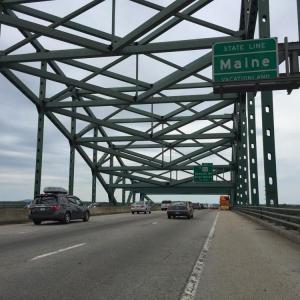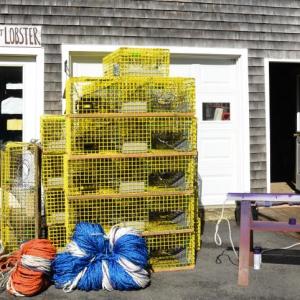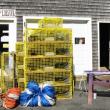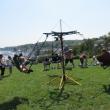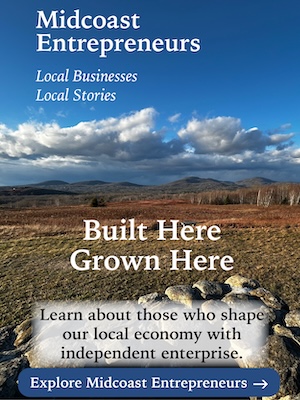The impact of COVID-19’s urban flight on Mainers
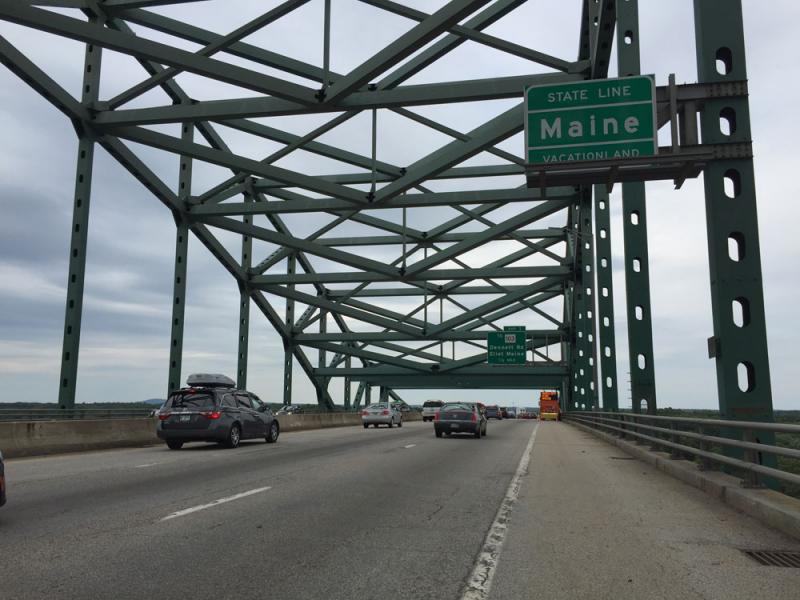 Photo courtesy Wikimedia Commons. Author: By Famartin - Own work, CC BY-SA 4.0, https://commons.wikimedia.org/w/index.php?curid=64431594
Photo courtesy Wikimedia Commons. Author: By Famartin - Own work, CC BY-SA 4.0, https://commons.wikimedia.org/w/index.php?curid=64431594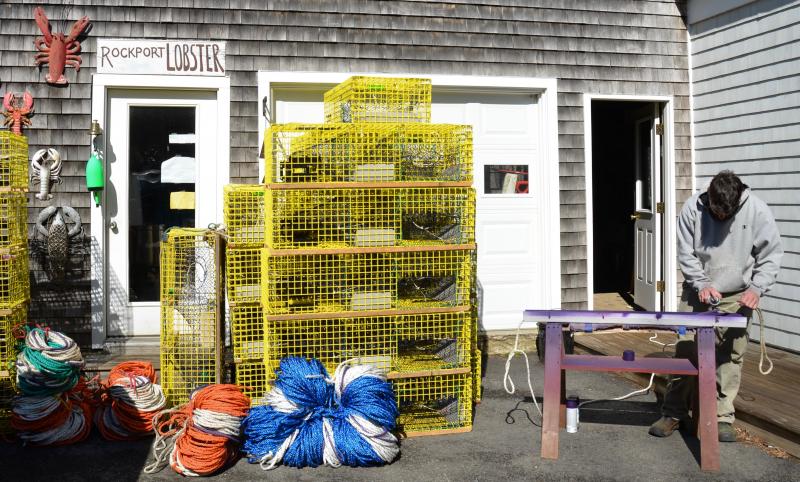 The fishing/lobster industry is fundamental to the Maine economy and way of life. (Photo by Lynda Clancy)
The fishing/lobster industry is fundamental to the Maine economy and way of life. (Photo by Lynda Clancy)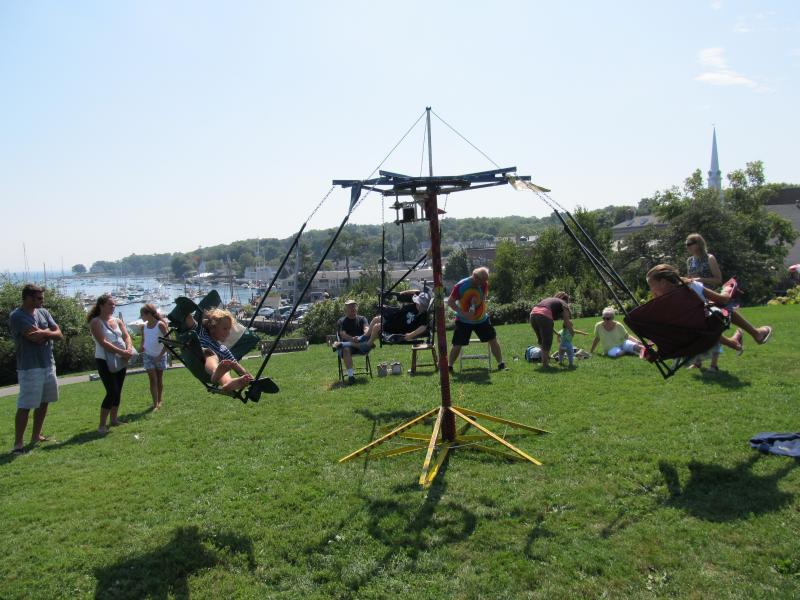 A 2014 photo of the Midcoast Mini Maker Faire by Kay Stephens
A 2014 photo of the Midcoast Mini Maker Faire by Kay Stephens (Photo by Kay Stephens)
(Photo by Kay Stephens)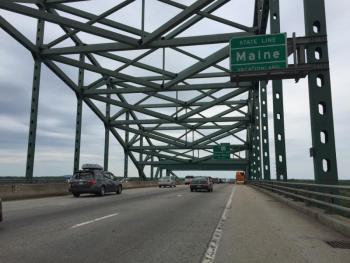 Photo courtesy Wikimedia Commons. Author: By Famartin - Own work, CC BY-SA 4.0, https://commons.wikimedia.org/w/index.php?curid=64431594
Photo courtesy Wikimedia Commons. Author: By Famartin - Own work, CC BY-SA 4.0, https://commons.wikimedia.org/w/index.php?curid=64431594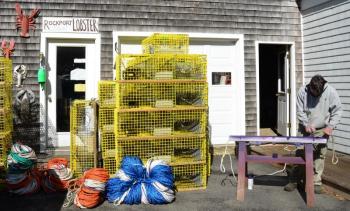 The fishing/lobster industry is fundamental to the Maine economy and way of life. (Photo by Lynda Clancy)
The fishing/lobster industry is fundamental to the Maine economy and way of life. (Photo by Lynda Clancy)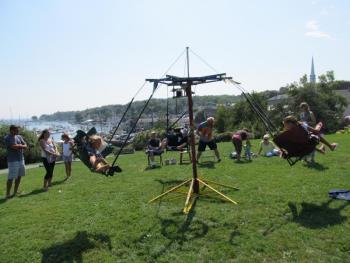 A 2014 photo of the Midcoast Mini Maker Faire by Kay Stephens
A 2014 photo of the Midcoast Mini Maker Faire by Kay Stephens (Photo by Kay Stephens)
(Photo by Kay Stephens)“Maine offers a quality of life that appeals to those living in highly populated and more congested areas of the U.S.”
This quote from a July press release from the Maine Association of Realtors is not news to those who live here year-round.
The COVID-19 pandemic that has upended the world has also produced a silent shift felt in Maine with more out-of-state residents fleeing to the state in search of home and rental properties.
A July report by Maine Listings, a subsidiary of Maine Association of REALTORS shows a sales jump of 12.43 percent with “evidence of increasing out-of-state buyer activity” from 2019 to 2020.
“It’s definitely a mix of in-state to out-of-state buyers and has been a mix for the last 10 to 15 years,” said Chuck Brawn, a real estate agent with Dwelling In Maine. “COVID-19 has likely accelerated some things that were already in place. I would say 10 years ago, one in three home buyers was from out of state and now it’s more like 50 percent—there are definitely more.”
Nancy Hughes, owner and Designated Broker of Camden Coast Real Estate, said that it’s not just home buyers moving into Maine. She estimates 40 to 50 percent of the inquiries she’s getting from people out of state are to rent apartments and houses.
“They don’t know if they want to commit to living in Maine full time before buying, and not all want to completely cut ties with the larger cities that they are coming from,” said Hughes. “The intent is to live here to escape what is happening in the more populated and dense areas for a simpler way of life while keeping the door open to return in a year or so when things will hopefully revert back to 'normal'.”
Still, she added it will be a culture shock for some. “A lot of people who are moving here are still city people and they know that they can’t be in a small community for the long term; it's such a disparity in the way of life, such a change,” she said.

What is ‘cottagecore” and the appeal of rural life?
A recent NPR article points to Taylor Swift’s new album as she frolics like a wood nymph in a primordial forest as an indicator of a new trend: “cottagecore.” As NPR’s author Emma Bowman explains, the trend “epitomizes a romanticization of the rural lifestyle...sourdough bread starters, foraged mushrooms, open meadows, freshly picked flowers, homegrown produce, knitting, baking pies, and, yes, rustic cottages.”
However, those who aren’t into pagan cosplay or laboring under fiddlehead foraging delusions have more practical reasons for moving to Maine.
“Ten years ago, you saw people moving up here up for the culture, the quality of life, a sense of community, and natural beauty but two other things also stand out,” said Brawn. “Most of the major towns have reliable Internet access for people working remotely. And waterfront or waterview property is still relatively cheap, than say on the north shore of Boston or the Hamptons, so Maine is still a relatively good value for oceanfront property in New England and the Northeast Corridor.”
With Maine’s diligence in containing COVID-19 comparatively to other states and as one of two states where coronavirus cases are decreasing, the appeal to breathe fresh air, have plenty of physical space to move around in and encounter fewer people is all too understandable in its attraction.
‘In the past there was a saying: people come to Maine because there's no crime. Well, now there's no crime and (low) COVID-19.’
—Chuck Brawn
Cities with high concentrations of people are losing their appeal. One only needs to read a slew of urban-bashing articles proclaiming that NYC is ‘dead forever’ to understand why so many city people want to trade their bustling lives to become country people.
How urban flight is affecting Mainers
But for all of those people coming in from out of state who are still retaining high-paying jobs remotely, it feels to many Mainers, whose average earnings fall well below the median income across the entire U.S., that they are getting priced out of the market for homeownership as well as squeezed out for apartment rentals.
The ability to afford a house or an apartment in Maine was already stretched to a thin edge—and that was before a pandemic that put 80,000 Mainers out of work, according to recent state data. An April 2019 report prepared by the Maine Development Foundation for Maine Economic Growth Council concluded that housing affordability in Maine has been declining since 2014.
The report stated: “In 2017, homeownership costs met or exceeded the affordability threshold... in nine of Maine’s 16 counties, but rental housing was not affordable in any county.”
"It’s 100 percent true that if the average Maine homebuyer who has a price limit is put in a competitive situation with an out-of-state buyer who can buy in cash, and doesn’t have a financing contingency — that the Maine home buyer at a strategic disadvantage,” said Brawn. “There is a shortage of affordable housing that has been evident for the last 20 years and now is getting worse.”

The upsides to a diverse population
People “from away” have always moved to Maine. I happen to be one of them who moved here by myself in 1993, when apartments were still cheap and plentiful. Since then, I’ve seen scores of young people moving out of state. This has been in tandem with the last decade of steady demographic growth and “bumps” such as the years after 9/11 with incoming residents. Throughout, I have taken a particular interest in observing the impact of out-of-state attitudes and behaviors on Maine residents and vice versa.
There is sufficient evidence that people from away have strengthened the arts and cultural side to Maine since the back-to-the-landers started coming here in the 1970s. Bringing diverse experiences and knowledge with them, they have undoubtedly contributed to Maine’s burgeoning arts, entertainment, restaurant, and brewing scenes in the last 20 years. Not to mention, their contributions to local tax bases. This winter, people who stay past the summer in Maine’s economy who have the means to work remotely and continue to bring in substantive income will also contribute to an economy that has taken a bashing from the pandemic.
“When someone from out of state buys a house, they often do improvements, additions and I think a lot of contractors, the builders, the septic companies, the landscapers, etc are a lot busier than they've ever been, so it's keeping people working,” said Brawn. “A lot of people who make their income somewhere else are spending it locally.”
“I do know a number of people who have what are typically summer residences and who are planning on staying in those summer residences well into the winter season,” said Hughes. “The upshot is that community businesses may benefit from this shift, because the loss of business through March, April and May through COVID-19 may be recovered in September, October, November, and December because there will be more people here using those commercial services.”

The long and short of it
But, those who choose to come to Maine right now as a “safety net” state would do well to open their eyes to the entire Big Picture, not just their own little slice of Vacationland.
COVID-19 has scared a lot of people be it from away or from Maine. An out-of-stater wanting to flee a city that is ravaged by the novel coronavirus and political violence is understandable, particularly if they have vulnerable members of their family at risk.
To echo Maslow’s Hierchary of Needs, everyone has the right to safety and security. However, those who move here to escape a lifestyle they no longer want must also empathize with year-round Mainers who also have the right to those very same needs as well. People who think they are escaping to the safety that is rural, bucolic Maine, are arriving at a time when tens of thousands of people are under- and unemployed, fearful, and out of their wits that they may be homeless themselves by winter.
Tensions are high in our small communities; we’re seeing it in more road rage incidents, confrontations over masks, ugly online comments. The sternman with a girlfriend who now cannot afford an apartment in Rockland where he works is fearful. The young couple with a baby on the way who consistently get outbid on an affordable house is fearful. The teacher who is watching more and more students from out of state enrolled in local schools this fall, now knowing her exposure to the virus will now be compounded, is fearful.
Those who are moving to Maine at this time must recognize that despite their cultural and economic contributions, there is a verifiable squeezing of housing resources. And native Mainers who are seeing their neighborhoods gentrified, or cannot compete economically to afford the homes and apartments in their own state are experiencing negative feelings—and to a degree, deep resentment—over these dwindling resources. These are the realities. And if you’re coming here from away, accept those realities with humility, empathy, and awareness.
I will never say anything as corporately trite as “We are all in this together.”
But we are here together. Let’s do whatever it takes to understand and help each other out.
Event Date
Address
United States

